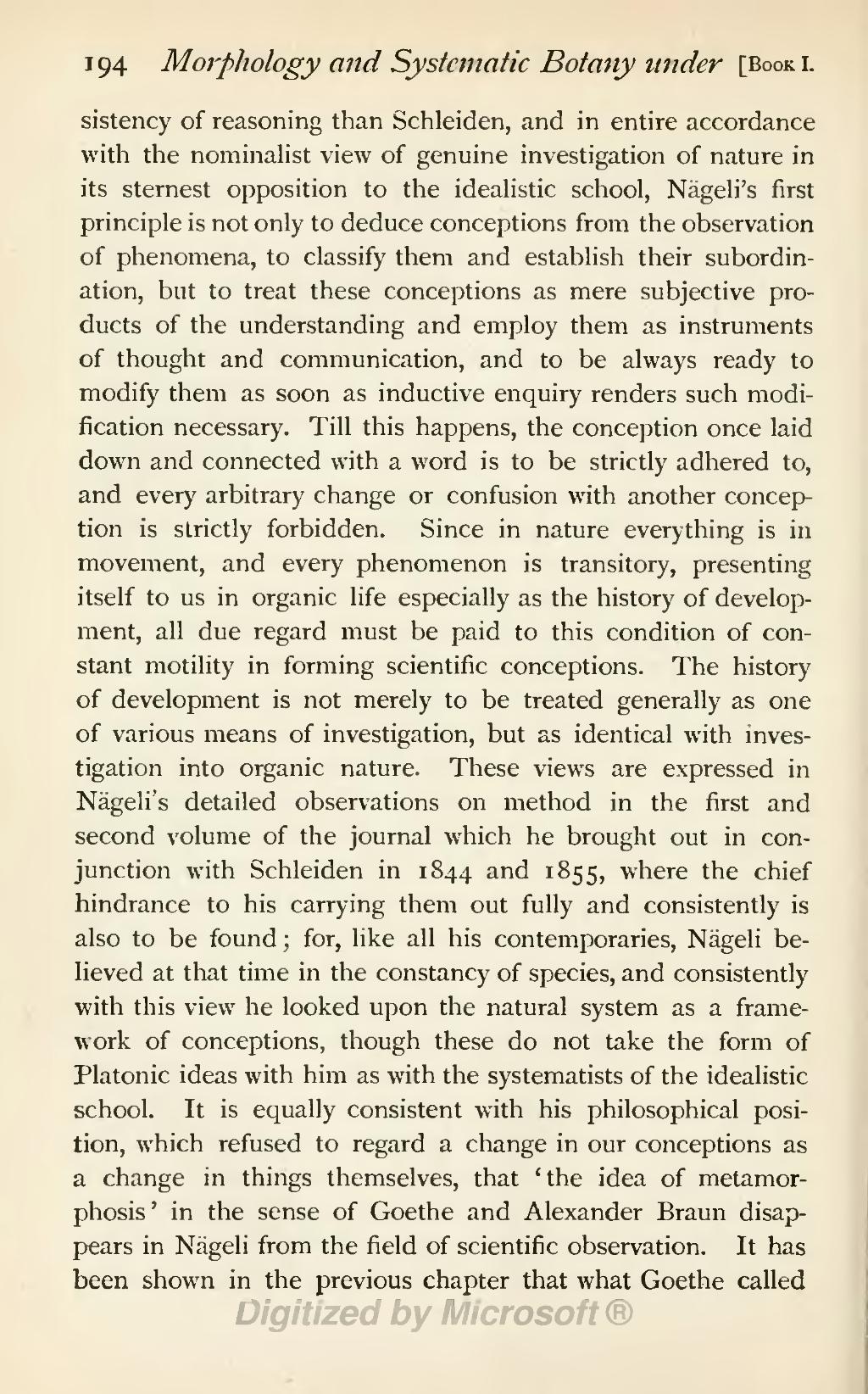sistency of reasoning than Schleiden, and in entire accordance with the nominalist view of genuine investigation of nature in its sternest opposition to the idealistic school, Nägeli's first principle is not only to deduce conceptions from the observation of phenomena, to classify them and establish their subordination, but to treat these conceptions as mere subjective products of the understanding and employ them as instruments of thought and communication, and to be always ready to modify them as soon as inductive enquiry renders such modification necessary. Till this happens, the conception once laid down and connected with a word is to be strictly adhered to, and every arbitrary change or confusion with another conception is strictly forbidden. Since in nature everything is in movement, and every phenomenon is transitory, presenting itself to us in organic life especially as the history of development, all due regard must be paid to this condition of constant motility in forming scientific conceptions. The history of development is not merely to be treated generally as one of various means of investigation, but as identical with investigation into organic nature. These views are expressed in Nägeli's detailed observations on method in the first and second volume of the journal which he brought out in conjunction with Schleiden in 1844 and 1855, where the chief hindrance to his carrying them out fully and consistently is also to be found; for, like all his contemporaries, Nägeli believed at that time in the constancy of species, and consistently with this view he looked upon the natural system as a framework of conceptions, though these do not take the form of Platonic ideas with him as with the systematists of the idealistic school. It is equally consistent with his philosophical position, which refused to regard a change in our conceptions as a change in things themselves, that 'the idea of metamorphosis' in the sense of Goethe and Alexander Braun disappears in Nägeli from the field of scientific observation. It has been shown in the previous chapter that what Goethe called
Page:History of botany (Sachs; Garnsey).djvu/214
Appearance

